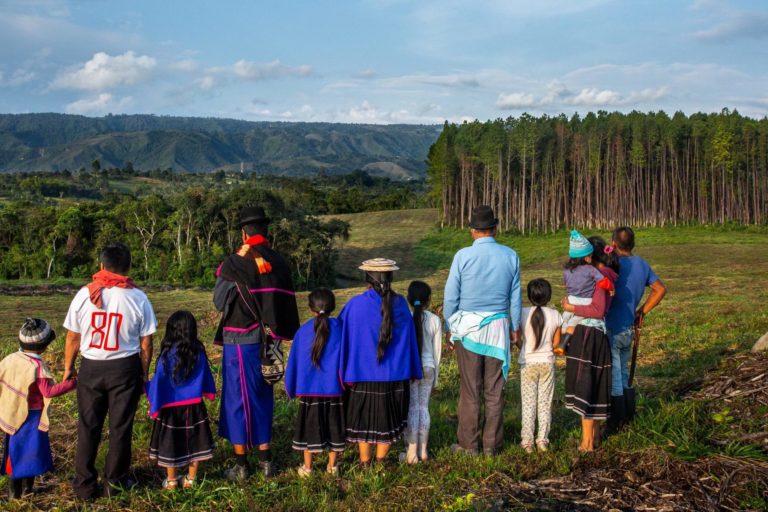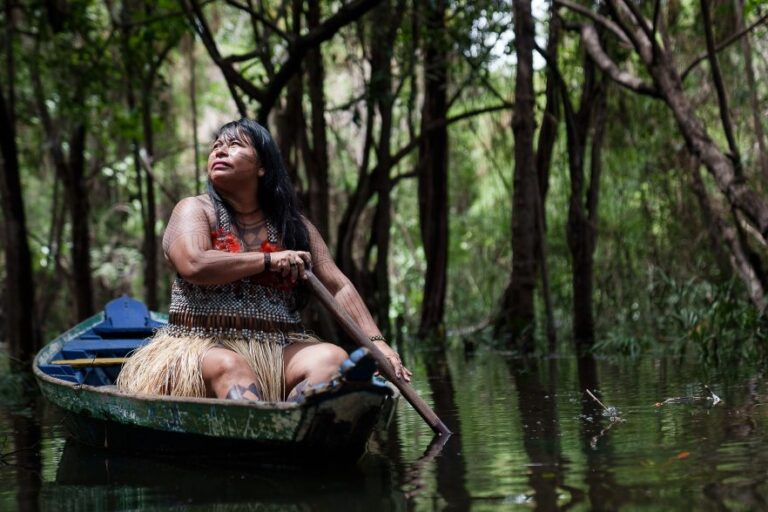Indigenous leaders joined the World Economic Forum’s 2024 Annual Meeting in Davos last week. They can significantly impact global rainforest conservation, but to do so, they need direct funding.
Rainforest Foundation argues that governments and donors should increase direct, flexible, and less bureaucratic grant-making to Indigenous peoples, who possess profound knowledge and proven community-based solutions for preserving the planet’s future.
The Davos discussions on climate change largely focused on unproven offset schemes, while it is increasingly clear that Indigenous peoples hold the key to effective solutions.
Indigenous communities, at the forefront of the climate crisis, have a track record of delivering scalable, community-based solutions for rainforest protection.

Despite managing over a third of the world’s intact forests, including half of the Amazon, they receive a small portion of international climate financing. A report highlights that less than 1% of climate aid provided between 2011 and 2020 was directed to support Indigenous peoples’ forest conservation.
Closing the gap in legal land ownership, providing training, and tools like smartphone apps have proven effective in protecting forests. Indigenous communities equipped with technology can monitor and report deforestation, significantly reducing forest loss.
Programs like Rainforest Alert empower Indigenous peoples with remote sensing technology, aiding in proactive responses to illegal deforestation. Indigenous peoples, as effective allies against climate threats, need increased support and recognition in climate endeavors.
The focus should be on empowering Indigenous communities with the tools they identify as necessary, respecting their rights, and ensuring Free, Prior, and Informed Consent.
As the fight against deforestation reaches a critical turning point, governments and donors must engage Indigenous peoples as true agents of transformation, increasing direct, flexible, and less bureaucratic grant-making to preserve the planet’s future.


